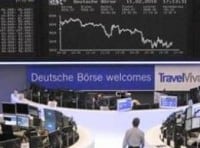
DIRTY PIIGS CLEAN UP THEIR ACT

Tables turned as BRIC markets boom
- Dateline
- 1 February 2015
Portugal, Italy, Ireland, Greece and Spain have certainly had a negative impact on the Euro zone in the past five years. Many will tell you that the PIIGS acronym has been totally deserved – politically and economically.
Complicit involvement from investment banks and deliberate concealment of debt levels by other EU countries threatened to tear the economic union apart, and lead to riots. But after the bloodbath Euro-doers are touting co-operation and a new era of innovation.
Now it has emerged that the crash of the Euro has finally had a positive impact. Exports from the region have boomed and 2014 was the best year ever. European car manufacturers have had a bumper season as they compete with Asian prices for the first time since the early 1990s.
The continued growth of the BRIC country economies has assured that there are markets for Europe’s much cheaper products. Innovation too has flourished with design being put center-stage in many industries. Land Rover is being called “the Apple of the automotive industry” – their hi-tech range of seductive city cars has grabbed the consumer spotlight.
Volkswagen has also now postponed the planned closure of their German plants. “We may be able to delay this indefinitely due to improved market conditions and supportive unions since the crisis of 2011,” said a press release issued this week.
Of course, all of this depends on the continued willingness to accept lower wages and more flexible working conditions.
At this week’s Davos discussions there was an unusual air of optimism about the future. Euro zone executives and politicians were all focusing on the opportunities of BRIC markets – the depression surrounding the PIIGS seems to finally have lifted.
ANALYSIS >> SYNTHESIS: How this scenario came to be
2010: Greek deficit threatens Euro
A threatened default by Greece on its sovereign debt threatens the stability of the Euro zone. But more damaging is the fact that Greece has been hiding its problems and evading EU rules for many years. What’s more, the banks and financial institutions implicated in the Credit Crunch have been complicit in this scam.
2011: Bailout backlash
Greece is bailed out by the big boys in the Euro club: France and Germany; but anger mounts at the scale of the deception. “The Greeks have been fooling us for years, with the help of Wall Street and the City of London,” report the bloggers.
The unrest escalates when it is revealed that Italy has an even larger ‘hidden deficit’, and the Euro tumbles.
“It’s time to come clean!” scream protesters in Munich and Marseilles, supported by the social networks and the Pirate Party, who helped uncover the truth. The ‘Facebook Party of Europe’ arises out of an online grouping and quickly establishes significant membership in 18 EU member states.
Riot police are forced to use tear gas in Paris and Berlin to prevent vandalism as students and workers go on the rampage. It’s the ’70s all over again.
2013: Down but not out
The Euro crisis has dragged down the whole region. Mobility of capital and labour means no country in the zone escapes. Everybody suffers, but there is a re-rating of ‘old world’ wealth. Some commentators suggest it’s long overdue, and the Europeans are getting their comeuppance at last. Personal fortunes are decimated and asset values slashed.
Switzerland escapes the currency meltdown, and the Swiss Franc regains much of its former glory. “Thank heavens we kept the Pound,” breathe the British Tories. The UK has similar problems, but at least this time, there was more transparency.
There is a hidden benefit in the Euro Crunch. Suddenly the region is more competitive and innovative. They’re hungry for business and prepared to compete on cost of production. Generations of technical knowledge and intellectual property are unleashed on the emerging markets, who are only too willing to get quality EU products ‘at a discount’.
2015: From PIIGS to producers
Entrepreneurial Europe has made a comeback. The tables are turned, as emerging markets once again ‘buy European’ for quality and price. The old world economies have been revitalized. Perhaps all they needed was a good shake up to get them out of the doldrums.
The aftermath will be felt for at least a generation: the new entrepreneurs don’t trust their governments and central control has been dealt a fatal blow. A little bit of anarchy goes a long way to restore common freedoms, after all!
Links to related stories
- Why Euro’s woes should scare us all: The Greek crisis is about more than the single currency. It may result in wider economic turmoil and greater EU integration - TimesOnline, 14 February 2010
- European parliament calls for investigation of Goldman Sachs and other investment banks that had contracts with Greece - The Guardian, 16 February 2010
- Crisis in Credit - Reuters online feature
- Wall Street Helped to Mask Debt Fueling Europe's Crisis - New York Times, 13 February 2010
- Branson backs 2010 spending cuts: Richard Branson calls for spending cuts, describing the UK budget deficit as a "serious risk" - BBC News, 17 February 2010
- MindBullet: G22 APPROVES ZERO TAX RATE (Dateline: 20 Oct 2015, Published: 17 December 2009)
- MindBullet: LONG BOND COLLAPSE TRIGGERS US$13 TRILLION TRADING LOSSES (Dateline: 19 August 2019, Published: 09 April 2009)
- MindBullet: THE THREE OLD MEN OF EUROPE CRUMBLING (Dateline: 12 June 2010, Published: 18 May 2006)
Warning: Hazardous thinking at work
Despite appearances to the contrary, Futureworld cannot and does not predict the future. Our Mindbullets scenarios are fictitious and designed purely to explore possible futures, challenge and stimulate strategic thinking. Use these at your own risk. Any reference to actual people, entities or events is entirely allegorical. Copyright Futureworld International Limited. Reproduction or distribution permitted only with recognition of Copyright and the inclusion of this disclaimer.